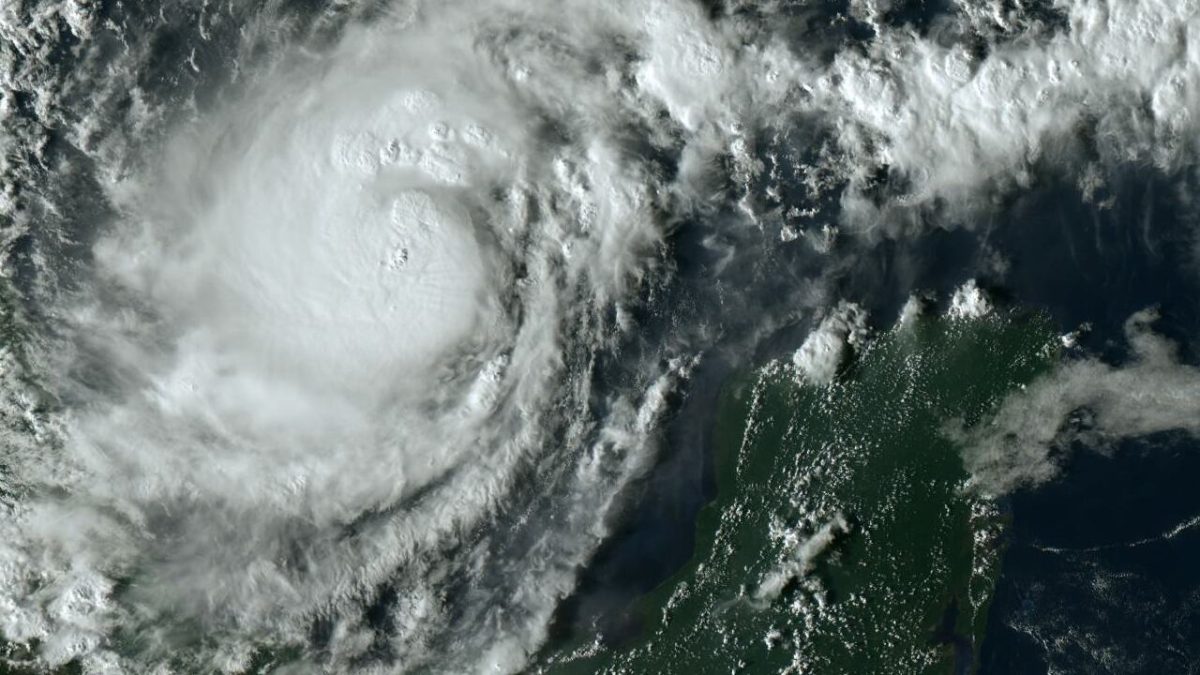As the residents of southeastern America are still recovering from the aftermaths of Hurricane Helene, another hurricane–Hurricane Milton, is on its way to the Western Florida Gulf coast and is predicted to be the deadliest natural disaster the nation has seen in recent history.
The continuous destructions from both hurricanes devastate the Southern part of United States. As Hurricane Milton is hours away from hitting Florida, we can only pray for the safety of the residents as the storm is about to rage on. It is also essential for us to stay aware of the recovery measures that should not be undermined.
Aftermath of Hurricane Helene
With mass flooding, wind destruction, and intense storms ravaging the Carolinas, Georgia, Virginia, and Florida, Hurricane Helene has been one of the most destructive since Hurricane Katrina in 2005. Only starting a little over a week ago, the hurricane has now been classified as a Category 4 hurricane and has tragically taken at least 223 lives in its path of destruction of homes, roads, infrastructure, and communities.
The situation is grim in North Carolina, with countless cities like Asheville being overturned by the hurricane. Many homes across the city were flooded or destroyed, and communities lacked food, water, and safe shelters. President Biden sent around 6,000 National Guard units into areas to address the dire need of aid across the regions of the United States damaged by the hurricane.
“The power lines look like spaghetti,” Ashville Mayor Esther Manheimer said to reporters. “It’s hard to describe the chaos that it looks like. It feels like a post-apocalyptic scene.”
In areas that Hurricane Helene passed through such as Marshall, NC, and Kenton Beach, FL, dozens of volunteers, nurses, and doctors across the United States have arrived to help rebuild the severely damaged cities and towns. Hundreds of Southerners have lost access to reliable power, including 220,000 in Georgia and 277,000 in the Carolinas, hindering easy accessibility to electricity, water, A/C, and other necessities. To combat this unfortunate footnote, tens of thousands of electrical and line workers are working around the clock to repair the power outages.
Former President Donald Trump arrived in areas impacted by the hurricane in Georgia a week ago, meeting with Georgia’s Governor, Brian Kemp, in Evans, GA, to discuss how Helene has affected Georgia and the surrounding states, along with aid efforts there. Some speculate that Trump’s appearance may be to boost Republican support in Georgia in the upcoming November elections, while others disagree with this statement. Vice President Kamala Harris also visited Georgia, helping hand out meals to victims of the hurricane. Harris expressed the importance of aid, pledging to give federal help for widespread rebuilding.
Hurricane Milton to hit Florida Tonight
In more recent events, almost immediately following Hurricane Helene, a second hurricane, Hurricane Milton, is presumed to arrive in Florida relatively soon, leaving civilians and government officials scrambling as they brace for the dark skies to come in the following days. Airports, highways, and train stations are packed with tourists and locals trying to get out of the Greater Tampa region in Florida each hour.
Hurricane Milton is predicted to roll through most of Florida, excluding the panhandle, wreaking havoc on the entire internal and coastal regions of the state. “Time is running short,”Gov. Ron DeSantis said during a briefing on Tuesday, when talking about the impending event.
This morning, the National Weather Service reported that Hurricane Milton, a Category 5 storm, was spotted some 545 miles off the Tampa coast, traveling at a rate of 12 miles (19.3 km) per hour, with the potential to reach wind speeds of up to a devastating 180 miles (289 km) per hour. Gas stations have received large shipments of gasoline from out of state to ensure evacuees have enough fuel to leave the area, with corporations like Shell PLC and Walmart collaborating with the Florida government to support evacuation efforts. Thousands of flights in and out of Florida have been canceled this week due to the mass panic, leaving many in a difficult situation across the state.
Milton is presumed to surpass remain a category five–the highest rating on the Saffir-Simpson (SSHS) Hurricane Wind Scale. A category five hurricane on the SSHS Hurricane Wind Scale indicates catastrophic damages to the region, with a high percentage of homes expected to collapse and power outages that could last for months. Only four past hurricanes have hit the U.S. with this much intensity.
The coming days seem uncertain on what will exactly happen, but the people of the United States and Florida are holding their breath as Hurricane Milton approaches. However, many hurricanes in the nation’s past have been treated as “one-off disasters” as governments continue to focus on cleaning up the aftermaths instead of fortifying preventative measures for future storms. It is key that disasters should not only be dealt as a one-time, occasional “surprise,” but a painful lesson that all must remember and prepare for.
Editors’ note: If you would like to support the current relief efforts for Hurricane Helene, please visit North Carolina’s official relief donation page.
























































Evan Michaeli • Oct 9, 2024 at 9:47 pm
Hi Clive – this is a great piece, especially for your second piece, regarding the hurricanes in the Southeast. I agree that the government’s response to hurricanes–including what we’ve seen with Helene–isn’t truly repairing communities, rather continuing to let them down. There also needs to be a stronger presence for preventative measures, especially through climate action and disaster preparedness and mitigation, something the U.S. continues to lack. Keep up the great work!